Non-trivial programs in hand-written WebAssembly
This repo is a collection of useful algorithms written from scratch in WebAssembly text format (.wat) and assembled to .wasm via wabt.
See Overview section for a list of programs included. See wat folder for the fully-commented and well-explained source code. See wasm for compiled binaries you can grab and use (with your JS projects). See tests for usage examples.
Despite that the algorithms are non-trivial, the assembled binaries are extremely small (compared to say what you get from emscripten)! Average file size is ~900 bytes.
I find WebAssembly a wonderful technology, and have been compiling C's and C++'s to wasm via emscripten for many projects. So I thought I should learn at least learn the "real" thing -- coding in WebAssembly directly. Fortunately, the lisp-like S-expressions makes the language quite pleasant to work with.
I haven't found many handwritten examples beyond the "fizzbuzz" and the "99 beers". (This Conway's Game of Life in WebAssembly gave me a lot of inspiration though). So I started my own little collection of algorithms I enjoyed, in hand-written WebAssembly, with ample comments and explanations for the reader.
I think WebAssembly is the sort of language where the beauty is derived from its simplicity.
| thinning.wat | |
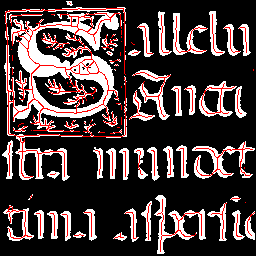 |
Skeletonization/thinning of binary images. Implements Zhang-Suen (1984). Paper |
| disttransform.wat | |
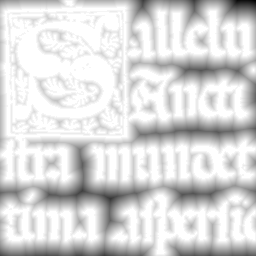 |
Compute distance transform of binary images. Implements Meijster distance. Paper |
| findcontours.wat | |
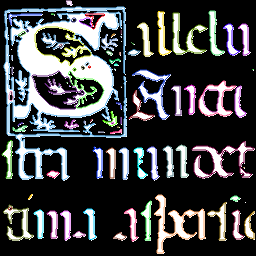 |
Trace contours from binary images (vector output). This is the same as OpenCV's findContours. Implements Suzuki-Abe (1983). Paper |
| browniantree.wat | |
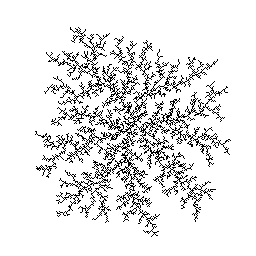 |
Generate brownian fractal trees (aka Diffusion-limited aggregation). |
| mazegen.wat | |
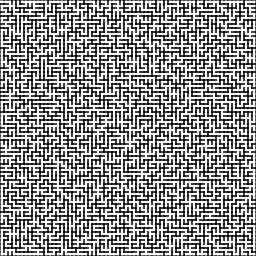 |
Generate mazes using Wilson's algorithm, which guarantees an unbiased sample from the uniform distribution over all mazes. |
| malloc.wat | |
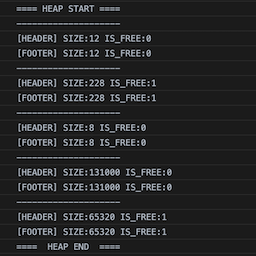 |
Very baseline 32-bit implicit-free-list first-fit malloc. |
| traceskeleton.wat | |
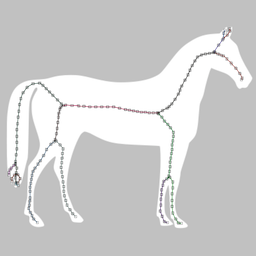 |
Retrieve topological skeleton as a set of polylines from binary images. Original algorithm. Includes a malloc implementation and a linked list implementation. ~300% faster than the version complied with emscripten (and ~10x smaller), ~500% faster than vanilla Javascript. |
| containers.wat | |
 |
Implements STL-like polymorphic container types arr<T> (continous resizable array), list<T> (doubly linked list) and map<T,T> (hash table). |
| random.wat | |
 |
Uniform, Perlin, Gaussian, and exponential randomness. |